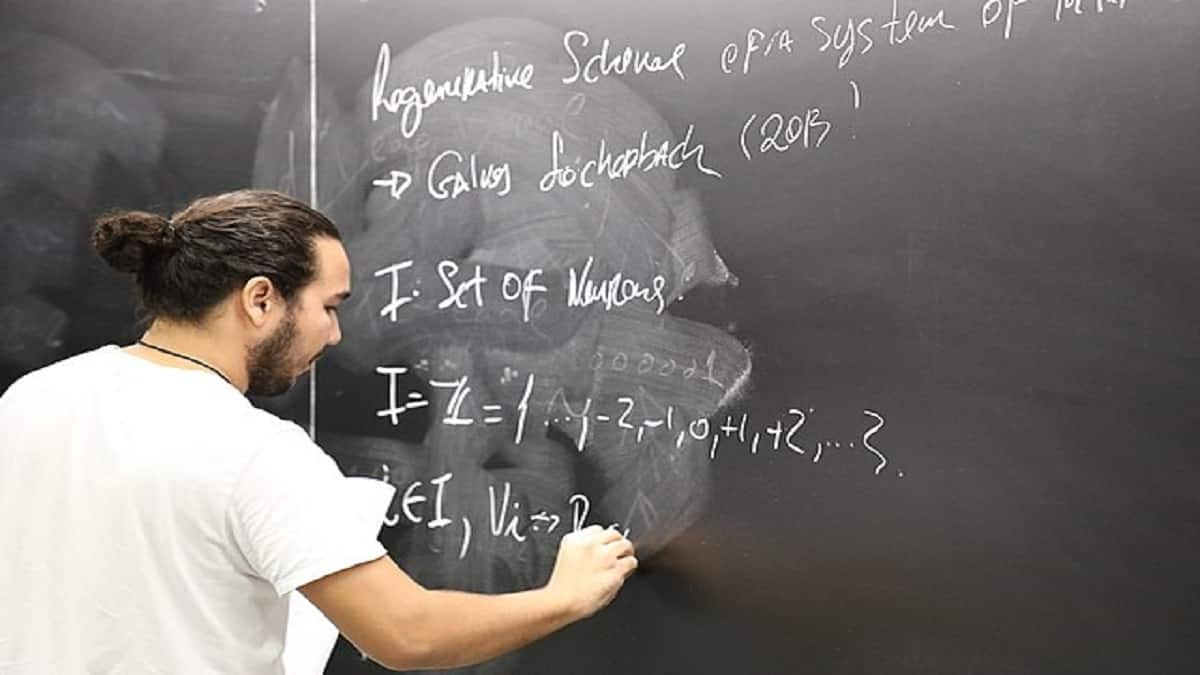'Education without teachers': Academics worry about govt interference, job security, UGC VC recruitment rule
Anu Parthiban | January 6, 2025 | 09:22 PM IST | 4 mins read
The UGC has relaxed the PhD mode requirements for faculty appointment in higher education. It will also allow appointing heads of industry and PSUs for VC post.

NEW DELHI: The draft UGC guidelines on faculty recruitment 2025 raises concerns about job security, academic standards, and fair employment practices, teachers said, while expressing apprehension about government interference and hiring more than 10% teachers on contractual basis.
The Union education minister Dharmendra Pradhan today released the “UGC (Minimum Qualifications for Appointment and Promotion of Teachers and Academic Staff in Universities and Colleges and Measures for the Maintenance of Standards in Higher Education) Regulations, 2025” today during the inauguration of new auditorium in the UGC office.
The new draft guidelines brought in several changes in the faculty recruitment in higher educational institutions (HEIs) such as lifting the 10% cap on contractual teacher appointment, allowing heads of industry and PSUs to apply for vice-chancellor post, and relaxing PhD mode requirements.
“By paving the way for hiring more than 10% teachers on contract basis, the government is shutting down aided full-time recruitment. There might come a day when not just the teachers, even VC would be hired contractually,” Gulabrao Raje, president of the Bombay University and College Teachers Union.
‘How capable would a VC be after 65 years?’
As per the new UGC guidelines, “The Vice-Chancellor shall hold office for a term of five years from the date on which he or she enters upon his or her office or until he or she attains the age of seventy years, whichever is earlier, and shall be eligible for re-appointment for one more term by following the procedure prescribed for the appointment of Vice-Chancellor”
Increasing the age limit for VC “is a ploy to keep denying key posts to aspirants from marginalised communities. How capable would a VC be after turning 65?” Raje said, adding that “there's the danger of handing over educational matters to political parties by involving industry persons for VC's appointment, thereby bypassing academics”.
Also read West Bengal university chancellors should have strong academic, non-political backgrounds: Academics
Milind Umekar, President, national president of All India Pharmacy Teachers Association said: “This draft UGC regulations bring flexibility and inclusivity to faculty recruitment and leadership appointments in higher education. Key changes include removing the 10% cap on contractual teacher hiring, expanding vice-chancellor eligibility to industry leaders, promoting Indian language qualifications, and recognizing diverse educational pathways by relaxing PhD mode requirements.”
“While these reforms align with NEP 2020 goals and foster multidisciplinary leadership, they also raise concerns about job security, academic standards, and fair employment practices, requiring careful consideration to balance innovation with traditional values,” Umekar told the Careers360.
New UGC regulations: ‘A welcome move’
Rahul Dahatonde Dean (Finance and Admin), Sardar Patel College of Engineering (SPCE), Mumbai said: “It's a welcome move, as it will give an opportunity to the candidates with relevant industry or R&D institutions experience to lead academic institutions. Such candidates may accelerate achieving certain goals of NEP. The provision to consider the candidates with academic administrative background may be used for the backdoor entry of some senior administrative people who generally have less academic exposure and more admin interests.”
Direct government interference
Expressing concern on the new regulations, Jagannath Khemnar, University of Mumbai senate member told the Careers360: “These rules allow for direct government interference in higher education through the chancellor's nominee. In earlier rules in Maharashtra there was a provision for a retired Supreme Court Judge or retired chief justice of the high court to be a member of the search-cum-selection committee of VC, which ensured adherence to the rules and regulations. Now, the process may succumb to political pressure.”
“The removal of the cap on contract teachers is very risky to the education sector. Now universities and colleges will prefer to appoint more contract teachers rather than permanent faculty, leading to the explanation of teachers and students,” Khemnar added.
PhD regular mode requirement relaxed
Chhaya Panse, former Principal at a college in Mumbai said: "I don’t agree that if the subject of PhD is different from the UG and PG then the subject of PhD will be considered for teaching. For teaching UG students, you need to have the same subject knowledge of UG subjects. PhD is super specialisation of one part."
"If a biology student does research in nanomaterials or physics, ideally he or she cannot teach chemistry or physics. Moreover, if a candidate has to apply for job after completion of education it is difficult to fulfill the 9 criteria’s given for recruitment. In short it appears that appointments will not happen and education will continue without teachers. That is what is exactly happening and you have to depend on contractual teachers who can teach only for 9 months," Panse added.
If you want to share your experience at work, talk about hiring trends or discuss internships, write to us at theworkplace@careers360.com. To know more about The Workplace itself, here's a handy note: Let’s talk work…
Follow us for the latest education news on colleges and universities, admission, courses, exams, research, education policies, study abroad and more..
To get in touch, write to us at news@careers360.com.